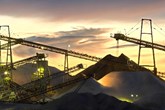DP World takes delivery of Vortex port equipment simulators
Published by Louise Mulhall,
Editorial Assistant
Dry Bulk,
CM Labs Simulations, developer of simulation-based training solutions, has announced that DP World Australia's Melbourne terminal, the largest container terminal in Australia, is deploying Vortex Port Equipment Simulators as the cornerstone of its enhanced operator training programme.
DP World Australia’s new training simulators include CM Labs’ customised training modules for ship-to-shore (STS) and straddle carriers, offering unique capabilities for tandem as well as standalone dual cycle training exercises. The simulators are loaded onto a containerised dual simulator station that also incorporates an instructor operating station, featuring intercom and trainee documentation and tracking capabilities.
"When DP World Australia went to market, the CM Labs team were a standout in the field of port simulations with their professionalism in understanding exactly what the customer wants," said DP World Australia National Manager, Operations Efficiency, Michael Firmin.
"Their attention to detail at every stage of the project ensured a very customised leading global port simulator to Australia's largest and leading port terminal in Melbourne." With Vortex simulators, DP World Australia is set to achieve a measurable impact on training effectiveness and terminal productivity.
"The simulator has reduced our previous training programs for ship-to-shore cranes from average five months to six weeks with productivity increases that previously wouldn't be achieved within a 12-18-month period," Firmin said.
Read the article online at: https://www.drybulkmagazine.com/ports-terminals/23062017/dp-world-takes-delivery-of-vortex-port-equipment-simulators/
You might also like
Hybrid Handling Takes Hold
Sean Corbett, World Crane Services, explores how bulk handling systems and services are evolving to support flexible, multi-purpose port operations.

